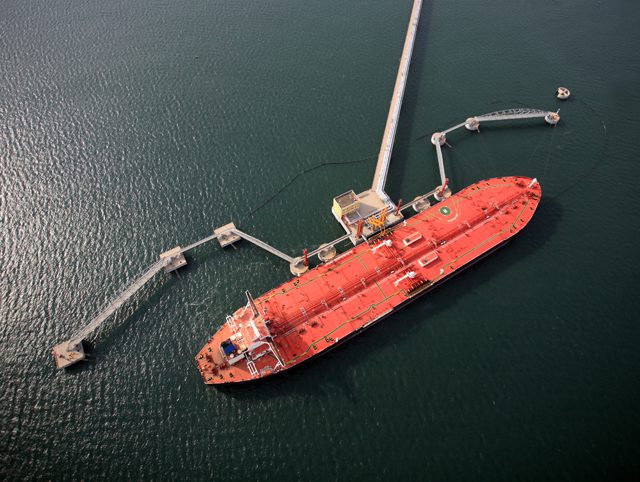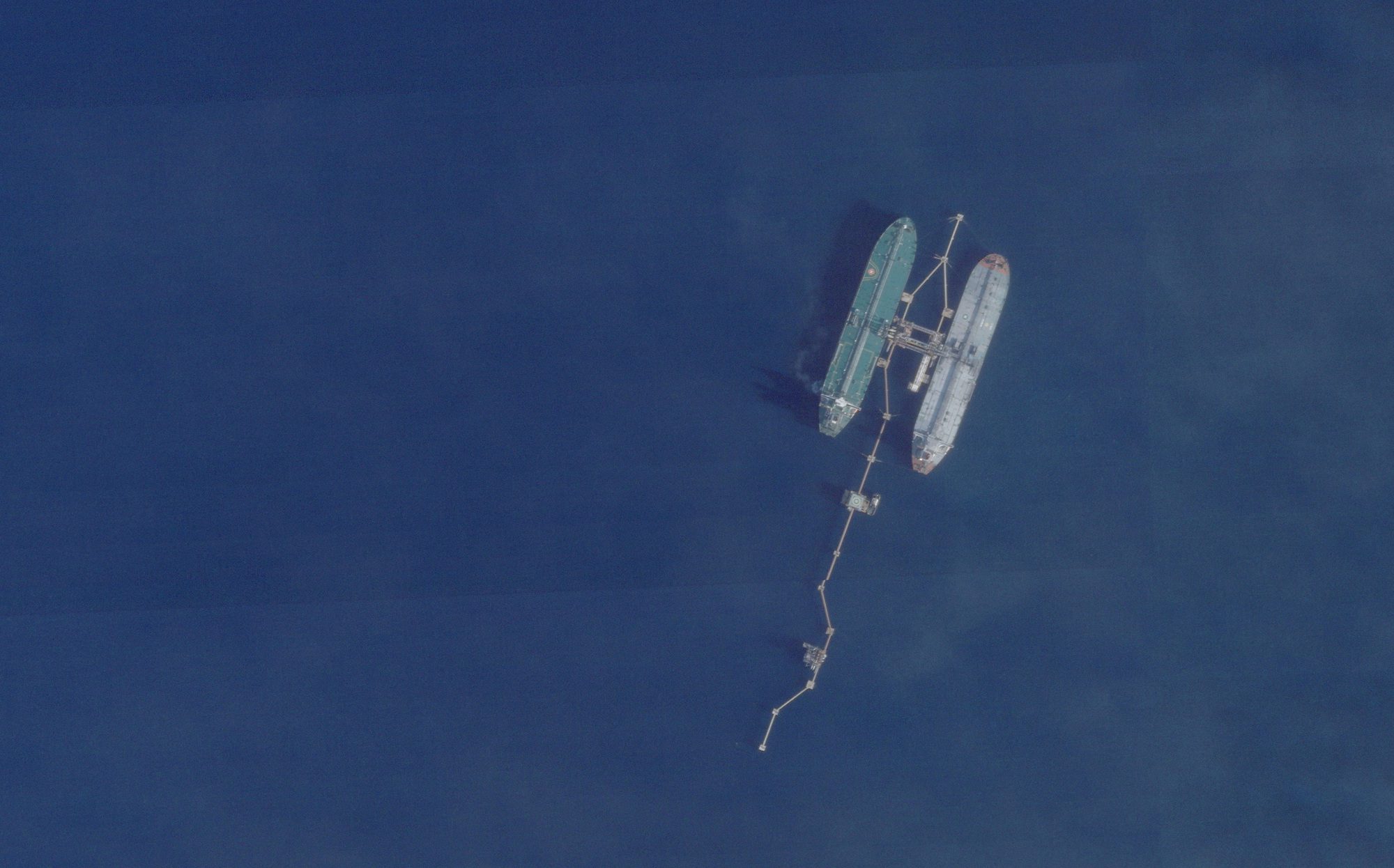By Serene Cheong, Alex Longley and Weilun Soon
Apr 3, 2025 (Bloomberg) –Oil traders looking to book ships that call at US ports are trying to avoid Chinese-built vessels, after President Donald Trump proposed hefty fees on them in a bid to revive American shipbuilding.
Charterers booking ships to haul cargoes that will load from, or discharge at, US terminals are asking for vessels that weren’t constructed in Chinese yards, according to people involved in the market. The requests are being made when traders have alternatives, such as South Korean-built tankers, the people said, declining to be identified discussing sensitive commercial matters.
Already, some made-in-China vessels are being fixed at lower rates. The Shanghai-built Olympic Sky was chartered for the US Gulf Coast to UK Continent route at 167 worldscale points this week, fixtures show. That’s about 10% less than a separate booking for the South Korean-built Rivera, which was fixed at 185 worldscale points for the same journey loading in the first half of April.
Although Trump’s plan hasn’t been finalized, the distortion in rates is indicative of the disruption emerging as a result of Washington’s proposed levy of at least $1 million each time a Chinese-operated or Chinese-built ship enters a US port.
“Implementation of the rules as proposed would make a large proportion of the tanker fleet uneconomical” when it comes to US trade, Poten & Partners Inc. wrote in a note last week. Companies looking to secure vessels on long-term charters are excluding Chinese ships from their inquiries, the shipping broker and consultant said.
Read More: Why Trump Wants to Target China’s Dominance in Shipbuilding
Some shipowners have altered leasing contracts to pass on levies imposed by the US to the companies that hire their vessels. Sales of second-hand Chinese bulk commodity ships, which carry raw materials from grains to metals and coal, have ground to a halt, while orders to build new vessels at Chinese yards have slowed.
China has rapidly grown to dominate the world’s shipbuilding. Although oil tankers made in South Korea form a much larger part of the global fleet in operation, more than 70% of the tankers currently under construction are in Chinese shipyards, according to Clarksons Research Services Ltd., a unit of the world’s largest shipbroker.
© 2025 Bloomberg L.P.

 Join The Club
Join The Club










